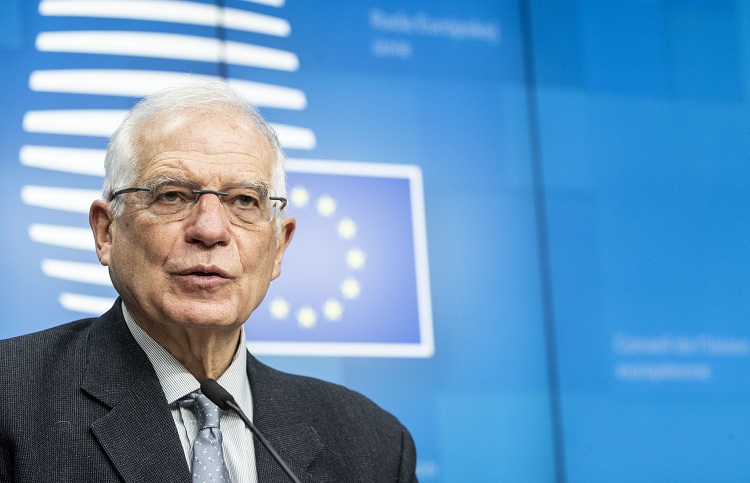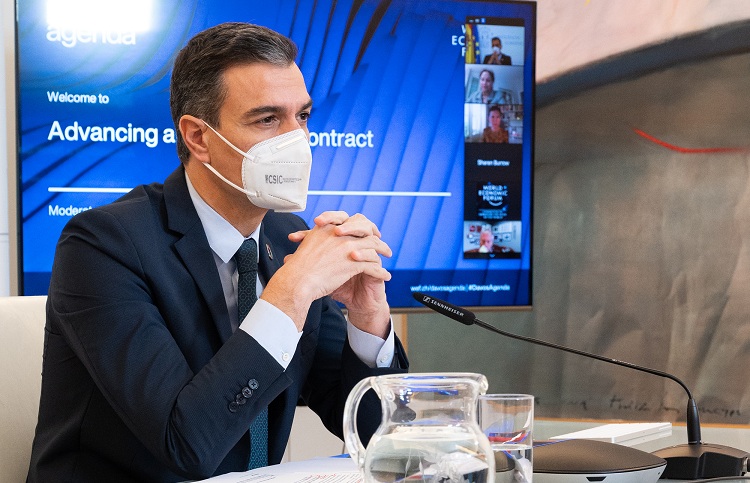Eduardo González
The High Representative of the Union for Foreign Affairs and Security Policy and Vice-President of the European Commission, Josep Borrell, yesterday announced to the Member States his “upcoming visit” to Moscow to send a “clear message” to the Russian authorities regarding the recent arrests of Russian opposition figures, including Alexey Navalny.
Borrell made this announcement during the meeting of the EU Foreign Affairs Council, which was held yesterday in Brussels and which condemned “the mass detentions and police brutality over the weekend” against opposition demonstrators and called on Russia “to immediately release Mr Navalny and all those detained”.
In addition, during the meeting, Borrell informed the ministers of his “upcoming visit to Moscow to discuss with Russian authorities all relevant issues and pass clear messages”, according to the head of diplomacy himself via his Twitter account.
During the press conference following the Council, the Minister of Foreign Affairs, Arancha González Laya, stated that “there has been a very clear condemnation by the EU of Navalny’s detention and a very clear request by the EU for his rapid release, as well as that of those detained during a series of peaceful protests that have taken place over the last few hours”, she added.
According to the minister, the issue of Russia will be addressed again “at a forthcoming Foreign Affairs Council”, in which, “on the basis of a diagnosis that the High Representative will present to us, the possible lines of action” will be decided. “We have not taken any decision today”, but “we do not exclude any response” if “the deterioration of the situation with regard to Navalny” continues and if “the reduction of the space for civil society in Russia” persists, she added.
Venezuela
In addition, the Council yesterday adopted a resolution on Venezuela in which, alongside the usual support for a negotiated political solution and a humanitarian response to the country’s problems, Member States express their support for “all those working towards a democratic future for Venezuela” and call for “the guarantee of all political and civil rights” and the “immediate and unconditional release of all political prisoners”.
In this regard, the resolution makes special mention of “political opponents, in particular representatives of the opposition parties elected to the National Assembly of 2015, and especially Juan Guaidó, as well as other representatives of the democratic opposition”, whom “the EU considers important actors and privileged interlocutors”. It also urges “the democratic opposition to take a unified stance with a view to an inclusive process of dialogue and negotiation”.
Regarding the repeated mention of Guaidó as a “privileged interlocutor” rather than “president in charge” (as declared last week by the European Parliament), González Laya insisted at the press conference that the EU’s position on this matter “is quite clear and this is the position that Spain maintains, as do the rest of the EU member states”.
“The Spanish position is the European position”, she said. “Spain does not have any position different from the one reflected by the 27 Member States in the communiqué adopted today in the Foreign Affairs Council”, she continued. “Spain says exactly the same thing here (in Brussels) and in Madrid; we do not change our opinion, we are coherent with what is reflected in the Community position”, she concluded.






